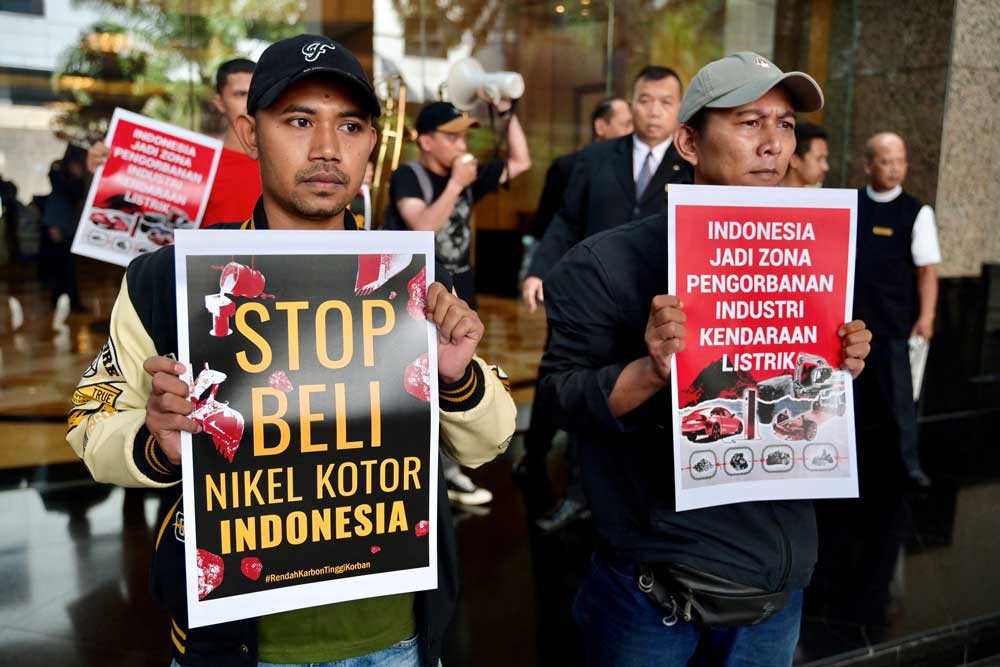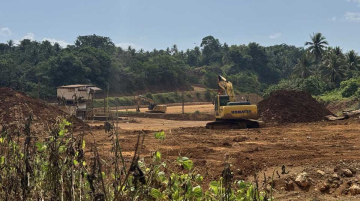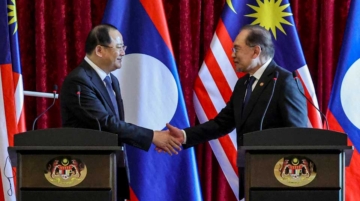
Indonesia thought it was building a future. Instead, it built someone else’s supply chain.
Last month, China imposed a 20% anti-dumping tariff on stainless steel from Indonesia, accusing Jakarta of undercutting prices and threatening Chinese producers. The penalty will remain in place for five years. But the real story isn’t the tariff. It’s the reckoning behind it: Indonesia is losing control of its most prized asset. And it has only itself to blame.
The country may sit on the world’s largest nickel reserves, but China holds the value—and the power. That imbalance didn’t happen by accident. It was the result of weak governance, poor planning, and a political system too eager to please investors rather than protect national interests.
The nickel strategy was supposed to be Indonesia’s breakout moment. In 2020, the government banned raw ore exports in a bid to move up the value chain. The idea was to attract foreign capital, develop processing capacity, and ultimately build a domestic manufacturing ecosystem.
That goal attracted a lot of investment but ultimately failed due to a lack of strategic discipline.
Today, Indonesia processes more nickel than ever before, but nearly all of it still leaves the country in semi-finished form. Local firms remain stuck at the bottom of the value chain. And the benefits—technology, profit, industrial leverage—flow elsewhere.
The recent tariff from Beijing underscores just how exposed Jakarta has become. “The anti-dumping duty will erode the competitiveness of Indonesian products due to shrinking profit margins,” said Sudirman Widhy Hartono, chair of the Indonesian Mining Experts Association (Perhapi). Indonesian smelters are already under pressure from falling nickel prices and weak demand from China, their primary customer. With margins collapsing, “many smelters may cut production,” he warned.
That means fewer exports, less foreign exchange, and rising economic vulnerability.
Chinese officials, meanwhile, insist the duties are needed to protect their domestic stainless steel industry, which is struggling with overcapacity and global uncertainty. But their timing is telling: Indonesian stainless steel—produced almost entirely by Chinese-owned firms operating in Indonesia—is now being penalized by China itself. This is less a trade dispute than a reality check.
Companies like Tsingshan, which dominates nickel and stainless steel production at the Morowali Industrial Park in Central Sulawesi, have already begun suspending lines. The promise of rapid industrialization is cracking under the weight of over-dependence and under-regulation.

The irony? This isn’t the end stage of Indonesia’s nickel policy. It’s the middle. For all the talk of “downstreaming,” most of what Indonesia produces—nickel pig iron (NPI), ferronickel, and stainless steel billets—are still intermediate products. “They’re not the final products of nickel downstreaming,” Sudirman noted. “The domestic downstream industry is still not developed. Nearly all NPI and stainless steel is still exported abroad.”
Why didn’t Indonesia develop those downstream industries? The answer, in part, is corruption.
From sweetheart land deals to opaque tax incentives, many of the major industrial projects were fast-tracked with little transparency and minimal safeguards. Environmental and labor regulations were ignored. Licensing became transactional. Strategic decisions were too often made behind closed doors, benefiting a narrow circle of elites rather than the broader public.
Chinese companies, predictably, capitalized. They responded to the incentives they were given—cheap land, tax holidays, and a compliant regulatory environment. They brought capital and technology, but on their terms. Indonesia never set the rules of the game. It simply played along.
The result is dependency. When Chinese demand weakens—as is now the case—Indonesian producers are left stranded. Calls to diversify exports are growing louder, but “given the current geopolitical and economic climate, that may not be easy,” Sudirman admitted. Indonesia has built its entire nickel strategy around a single customer.
To its credit, the government is beginning to acknowledge the problem. Head of Indonesia’s National Economic Council, Luhut Binsar Pandjaitan, has called for deeper downstreaming—not just smelting, but manufacturing. “We must expand into end-user products,” he said recently, citing examples like surgical tools, kitchen sets, and industrial components. But that won’t be easy without a complete overhaul of how investment policy is made and enforced.
Because nickel isn’t a strategy. It’s a resource. And without strong institutions, it becomes a curse.
If Indonesia is serious about taking back control, it must confront the dysfunction at the heart of its model. That means cleaning up the corruption that distorts industrial policy. It means demanding technology transfer, not just land use. It means building domestic offtakers and insisting that foreign partners invest in full-cycle manufacturing, not just dirty smelters powered by coal.
Most of all, it means reducing dependence on China—not by cutting ties, but by cultivating alternatives. Strategic partnerships must be earned, not assumed.
Indonesia lost so much of its nickel to China, frittering it away without getting much in return. The only question now is whether the country can make up for what’s been lost—before the moment, and the resource, runs out.
This article was co-authored by Yeta Purnama, a researcher at the Center of Economic and Law Studies (CELIOS), and Muhammad Zulfikar Rakhmat, Director of the China-Indonesia Desk at CELIOS.








